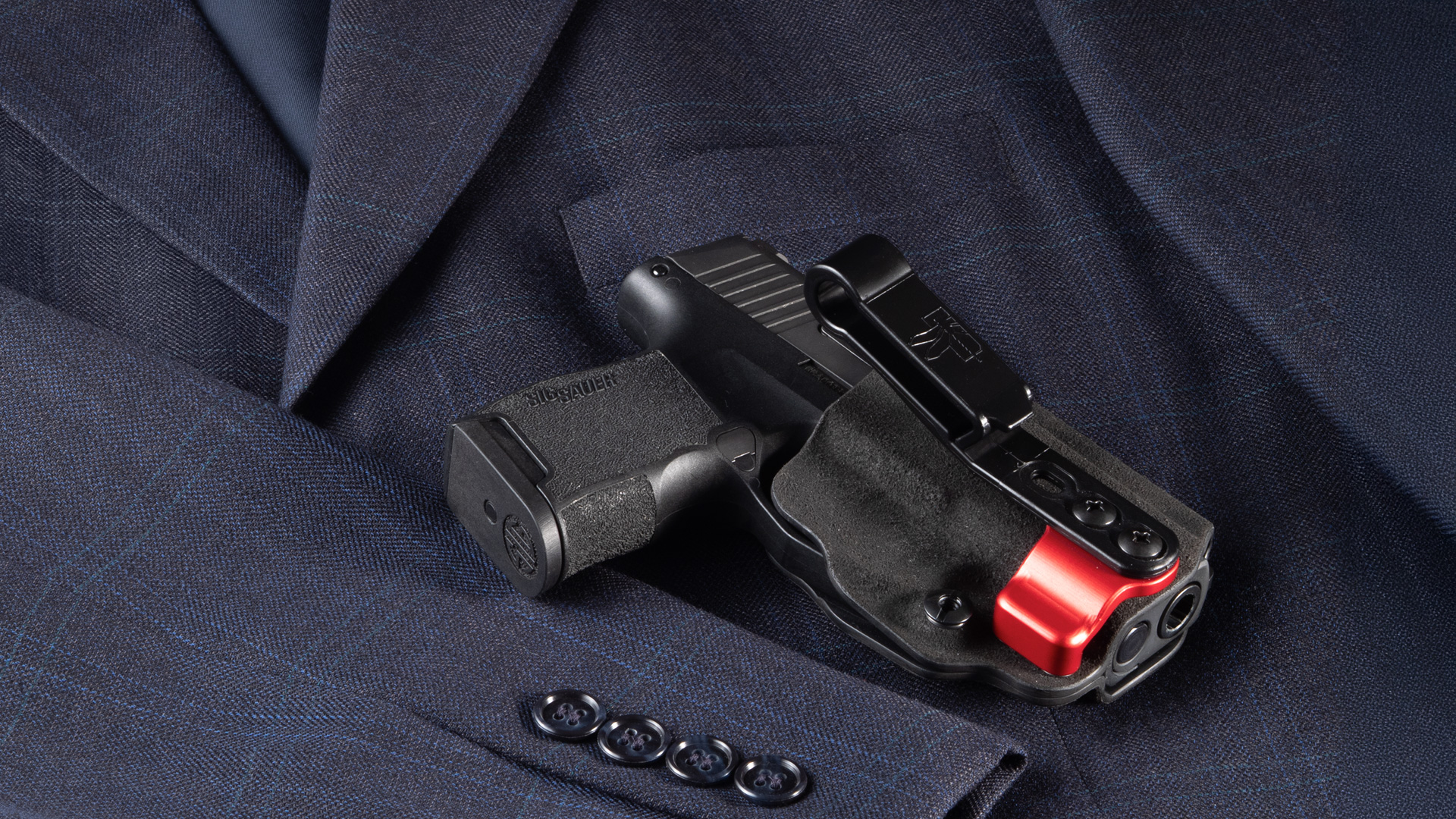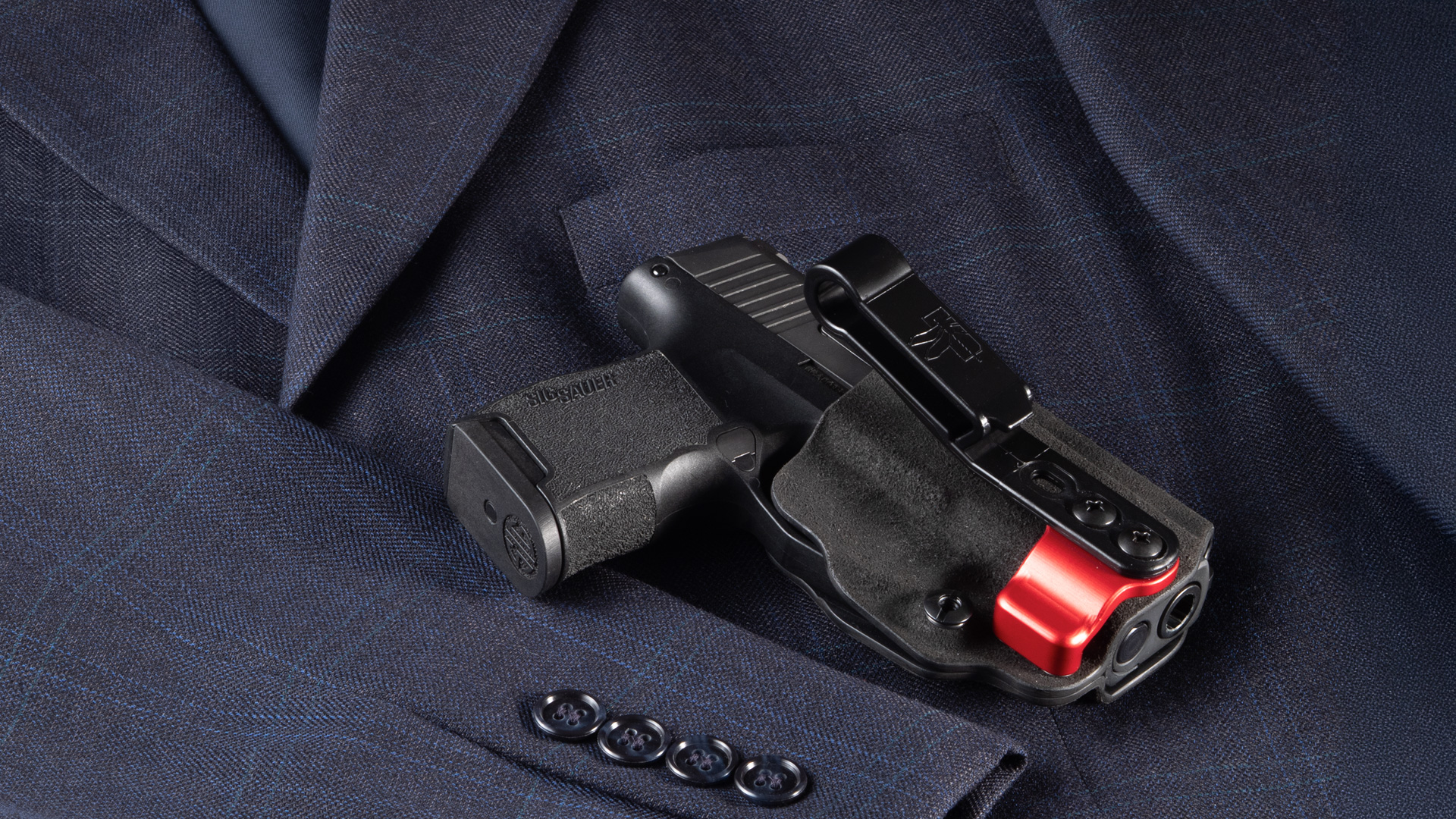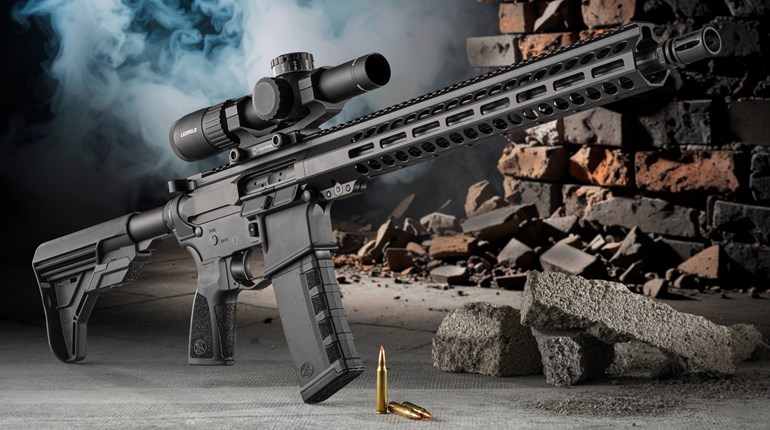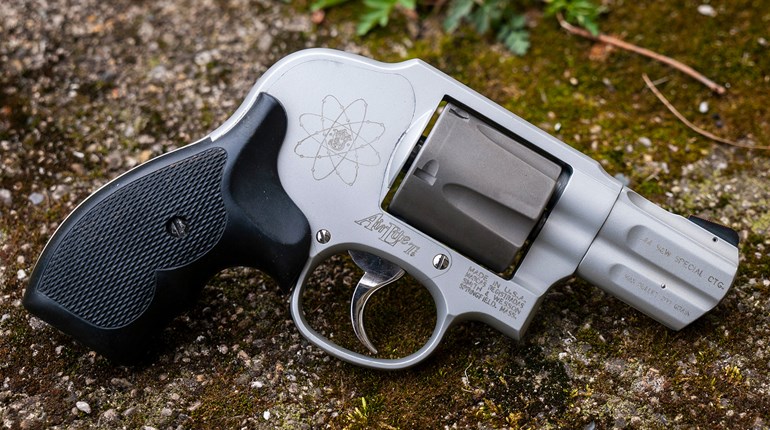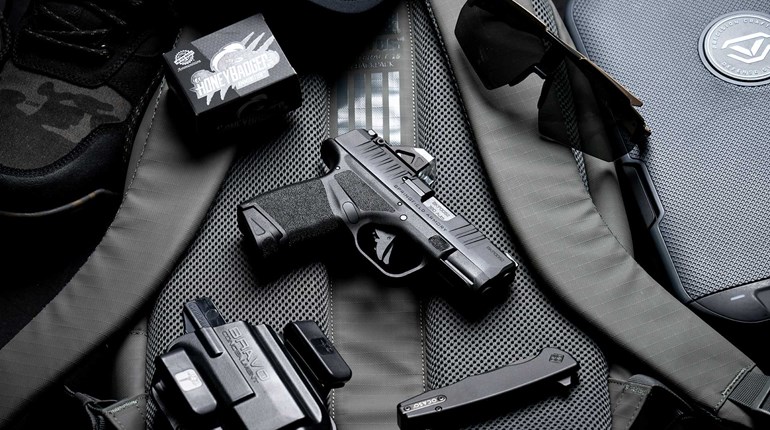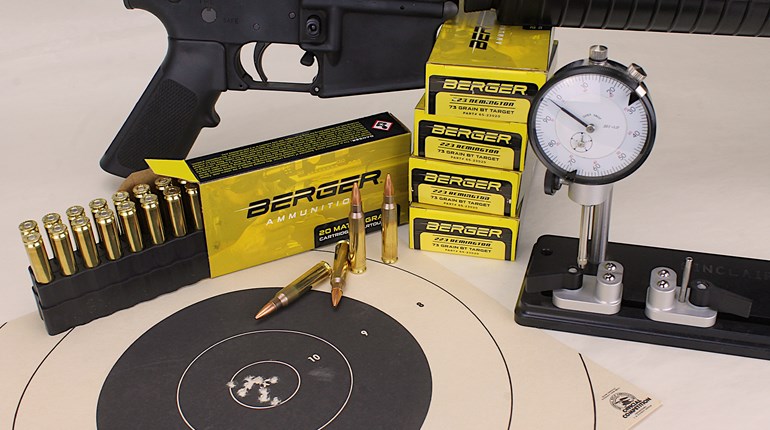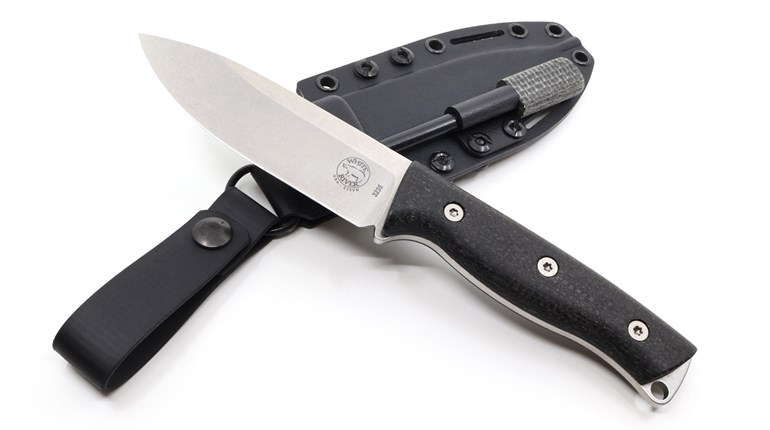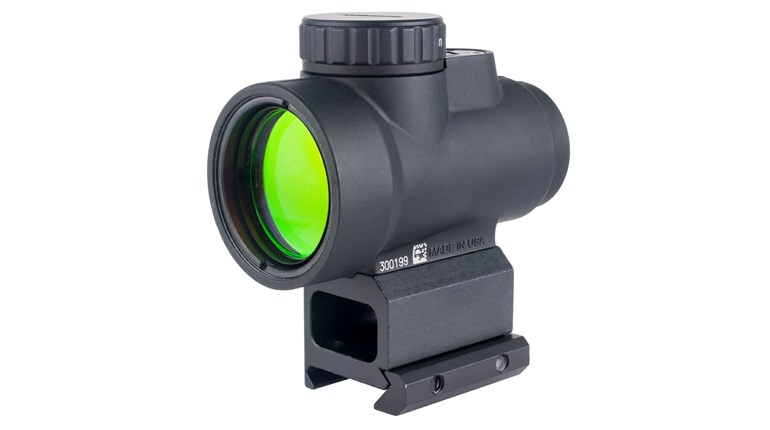
When NATO realized its militaries might one day be facing body-armor-clad Soviet troops behind NATO lines, it put out a call for a personal munition capable of penetrating such armor.
Fabrique Nationale jumped on this project and came up with a round that would fit the bill. Dubbed the 5.7x28 mm SS190 round, it used a .224-inch spitzer projectile loaded into a little bottleneck case that looked for all the world like a tiny rifle cartridge, juiced its velocity with a 50,000-psi powder charge and added a steel penetrator, because that’s how you punch through armor.
The cartridge was originally intended for a bullpup SMG-like firearm called the P90, but as the Cold War had wound down, around the turn of the millennium FN looked to expand its sales viability and paired the P90 and 5.7 round with a matching handgun named the FN Five-seveN.
As with all handguns, the brass ring for sales was gaining access to the U.S. commercial market, so FN concocted a round that would pass muster with the BATFE as not being armor-piercing and launched the “Individual Officers Model,” or IOM variant of the Five-seveN. Like the original, it was a pistol that looked like a prop from a sci-fi movie; all tubular contours and funky, distended-looking, semi-circular trigger guard, albeit with the practical addition of a Picatinny accessory rail.
In the intervening years it evolved through a Mk. 2 variant and finally into the new Mk. 3 MRD variant released in 2022 that we’re reviewing here today.
Whereas the Mk.2 had the effect of making the pistol less sci-fi looking than the original, the Mk.3 MRD makes it more sci-fi in actuality.
See, the original Five-seveN suffered from the same lack of science-fiction future vision as the M41 pulse rifles in “Aliens.” I mean, sure, they had impressive magazine capacities and fired futuristic-sounding cartridges but, as it turns out, iron sights are kinda 20th-century these days.

The MRD version of the Five-seveN fixes this by being fitted with suppressor-height sights and an optics cut from the factory.
Gentle reader, if any pistol had ever cried out for a slide-mounted miniature red dot, it’s the Five-seveN, for it is so flat-shooting, and in both senses of the term.
First, the lightweight, high-velocity projectile means that, while there may be a healthy amount of muzzle blast, there’s very little in the way of muzzle flip. With dot-sighted pistols in fairly mild-shooting chamberings like 9 mm, it takes either pitch-perfect technique, crushing brute-force grip strength or the assistance of a compensator to keep the dot from disappearing up and out of the window between shots. Not so with the Five-seveN; even a mediocre practitioner like yours truly can watch the dot stay present in the window through a multi-shot string.
Second, it’s flat-shooting in a ballistic sense as well, and the optic really helps that shine. Whereas most pistol rounds have pretty similar trajectories at indoor-range distances, when you start getting out into the 50- to 100-yard range, the benefits of the 5.7x28 mm round’s 1,600-fps muzzle velocity really shine. That flat trajectory is only enhanced by the easy targeting abilities offered by the MRDS, too. Ten-inch plates at 75 yards and mini poppers out by the 100-yard berm don’t require any kind of reckoning; just put the dot on it and shoot the gun.
Mechanically, the Five-seveN Mk.3 MRD is basically the same as its Mk.2 predecessor. It has an internal hammer and uses a recoil-operated, mechanically delayed-blowback mechanism to feed rounds from a 20-round magazine that uses a double-column/double-feed setup more similar to a little rifle magazine than the typical pistol mag that funnels the double columns into a single feed point. This is an inherently more reliable magazine design that’s allowed by the tiny diameter of the cartridges.

Cosmetically, the Mk.3 brings the Five-seveN firmly into the fold of the contemporary FN America duty pistol lineup. Since the pistol’s slide has a polymer exterior shell over its steel endoskeleton, it was easy enough to craft it in a shape whose contours, bevels and cocking serrations match those of the company’s 509 line. The texturing of the Mk.3’s grip frame more closely echoes the current 509 design language as well. Such styling cues have created an FN “look.”
That’s a good thing, too. The same texturing that’s pretty good on the 509 makes the shooter feel like a superhero with the more tamable recoil impulse of 5.7x28 mm. The pistol bays at my home range have five plates permanently installed down by the berm, and it was possible—easy, in fact—to play tunes on them from the 20-yard line.
If there are downsides to the pistol, they’re related to three areas. First, ammunition price and availability is a lot different than it is for a normie pistol chambering like 9 mm; that’s part of the reason this test only involved 350 rounds instead of the more normal 1,000-plus. (On the upside, other than an operator-induced malfunction on the first magazine, the other 349 rounds went off without a hitch.)
Second, the nature of the Five-seveN’s construction means that the adaptor plates for the various sights are actually just polymer spacer shims rather than metal adapter plates; the holes for various sight footprints are right in the steel endoskeleton of the slide. You get one plate for the Trijicon RMR footprint, one for that of the Leupold DeltaPoint Pro and one for the Vortex Viper. (The Vortex Venom and Burris FastFire footprints screw directly to the slide, sans adaptor.)
Finally, the pistol’s roots in a military program from 30 years ago mean that it obviously was not designed with the modern concealed-carrier in mind. The safety, while ambidextrous, is in a weird place and would require dedicated practice to master using in anything like a hurry. Similarly, it’s a bulky pistol. It was designed without a thought for concealment, but if you can carry a Beretta 92 or full-size 1911 concealed, you could tote this. It’s certainly light enough; with an empty mag, my Swampfox Justice-equipped example weighed in at a hair more than 25 ounces empty, and a full magazine didn’t increase that much.
With the latest Mk.3 MRD update, the Five-seveN has evolved from 1990s science fiction to 2020s science fact.







